A allegory of the cave is a story narrated by Plato in his work “The Republic”. In it, Plato presents a scene in which prisoners chained in a cave since birth live in a limited reality, seeing only the shadows projected on the wall. These prisoners represent human beings who are trapped in ignorance and do not seek the philosophical knowledge. The myth of the cave is a metaphor for the journey of self-knowledge and search for knowledge TRUE.
Main points to be considered:
- Plato uses the allegory of the cave to represent how human beings are trapped in ignorance.
- A search for knowledge philosophy can free human beings from this prison.
- The cave symbolizes the illusory reality that we perceive through the senses.
- Leaving the cave and reaching the light of true knowledge is the path to self-knowledge and understanding reality.
- The myth of the cave remains relevant today, especially in a world where we are bombarded by superficial information in social networks and in the media.
The Myth of the Cave in Platonic Philosophy
The myth of the cave is part of the platonic philosophy, a philosophical current that seeks to understand the fundamental questions of existence and knowledge. Plato, one of the main philosophers of Ancient Greece, uses the allegory of the cave to illustrate how human beings are trapped in ignorance and how search for knowledge philosophy can set them free.
Na interpretation of the cave myth, the cave symbolizes the illusory reality in which we are immersed, the one we perceive through our senses. The prisoners chained inside the cave represent human beings who are trapped in this limited reality, only seeing the shadows projected on the wall. These shadows, in turn, represent the opinions and prejudices that we acquire throughout everyday life.
True liberation occurs when the prisoners are able to leave the cave and reach the light of true knowledge. This journey in search of philosophical knowledge It is the key to self-knowledge and a deeper understanding of reality. Through questioning the shadows and the constant search for truth, it is possible to free oneself from the shackles of ignorance and find a new meaning for existence.
A interpretation of the cave myth It has a deep and timeless meaning. It invites us to reflect on the importance of philosophical knowledge in our lives and how the search for this knowledge can make us more conscious and free human beings. Through the process of questioning and reflection, we can transcend the superficiality of everyday reality and enter a world of higher possibilities and truths.
“The search for philosophical knowledge frees us from the shackles of ignorance and leads us to true enlightenment.”
Therefore, understanding the myth of the cave in platonic philosophy is to embark on a journey of discovery and self-knowledge. It's opening up to new perspectives and questioning the reality that surrounds us. Only in this way can we reach a deeper level of understanding and meaning in our existence.
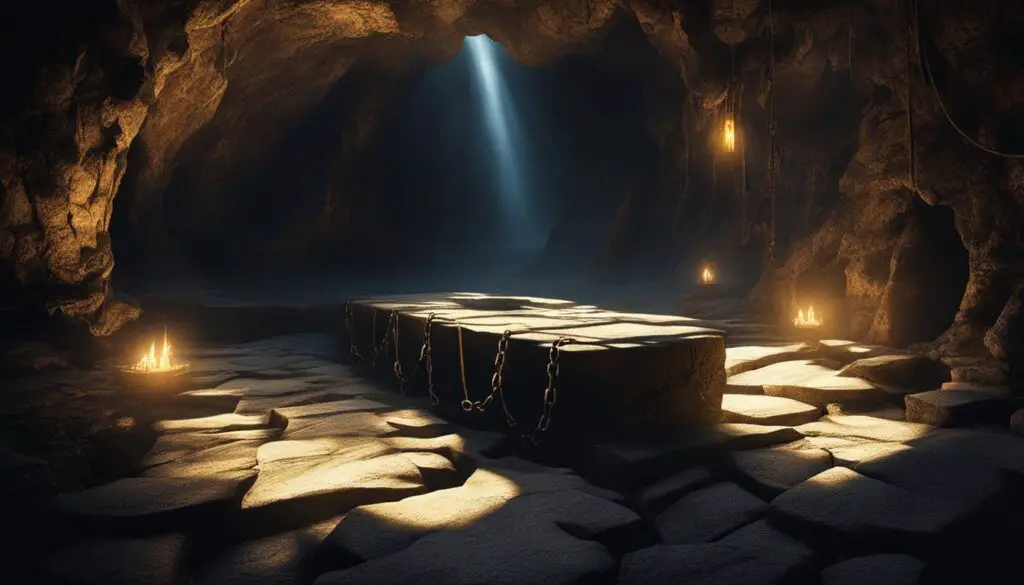
| Main ideas | Interpretation of the allegory |
|---|---|
| The search for philosophical knowledge | Represented by the process of leaving the cave and reaching the light of true knowledge. |
| Self-knowledge | Achieved through reflection and questioning the shadows cast in the cave. |
| The illusory reality | Symbolized by the cave and the shadows, which represent the opinions and prejudices acquired in everyday life. |
| The journey in search of truth | It follows the path of philosophical knowledge, enabling a deeper understanding of reality. |
The Interpretation of the Myth of the Cave
A interpretation of the cave myth involves understanding the symbols present in the allegory. Prisoners represent human beings who are trapped in ignorance and do not seek to know the truth. The cave symbolizes the illusory reality that we perceive through the senses, while the projected shadows represent the opinions and prejudices acquired in everyday life.
The exit from the cave symbolizes the journey of self-knowledge and the search for true knowledge. This is when prisoners decide to face challenges and question established certainties, seeking a deeper understanding of reality. This journey requires courage and willingness to question one's beliefs and open oneself to new perspectives.
The sunlight, which enters the cave when the prisoners finally leave, represents the philosophical knowledge that illuminates the mind and allows us to see reality clearly. It is the time when individuals find answers to their deepest questions and reach a higher level of consciousness.
“Philosophy is the search for true knowledge, it invites us to leave the cave of ignorance and explore the world beyond the shadows.”
Like the prisoners in the cave myth, each of us is invited to undertake this journey of self-knowledge. By understanding the limitations of our perception and our prejudices, we can open ourselves to new ideas and expand our understanding of reality.
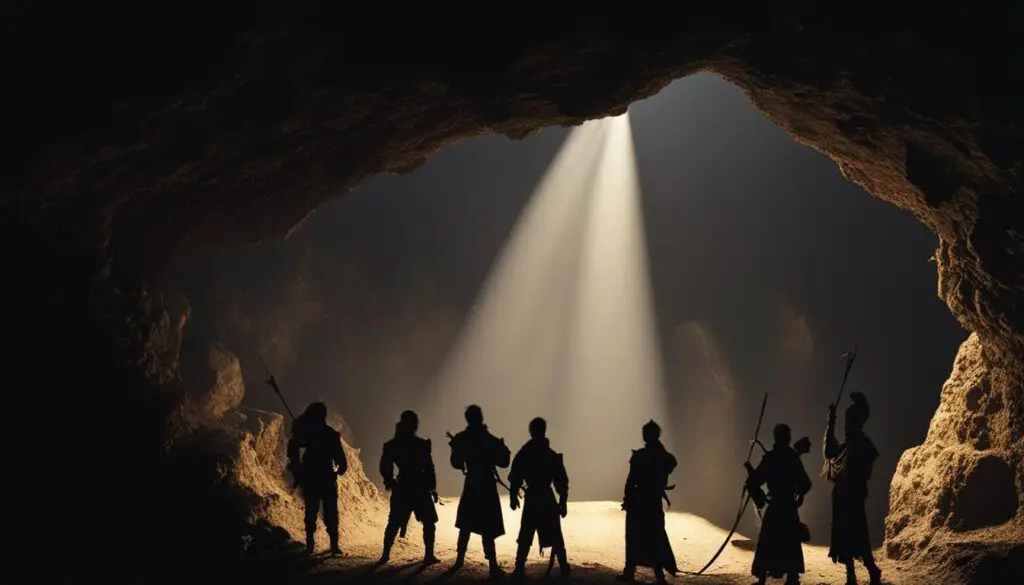
| Symbolism in the Allegory of the Cave | Journey of Self-Knowledge |
|---|---|
| – Prisoners: Represent human beings trapped in ignorance. | – Exit from the cave: Symbolizes the journey of self-knowledge and the search for true knowledge. |
| – Cave: Symbolizes the illusory reality perceived by the senses. | – Sunlight: Represents philosophical knowledge that illuminates the mind. |
| – Projected shadows: Represent acquired opinions and prejudices. |
The Myth of the Cave and Today
The myth of the cave remains relevant today, especially in a world where we are bombarded by superficial information in social networks and in the media. Many people are content to live in the “cave” of ignorance, consuming only scrap information and are not committed to seeking philosophical knowledge. The search for true knowledge and critical reflection are essential to escape the prison of ignorance and deception in contemporary society.
Our easy access to information in the digital age can be seen as an advantage, but it also brings significant challenges. To the social networks and traditional media often provide us with superficial and sensationalist content that does not promote intellectual growth. By contenting ourselves with just this quick information, we fail to seek deeper philosophical knowledge and understanding of reality.
Ignorance is not just a lack of knowledge, but also the active choice to avoid the pursuit of knowledge.
The search for philosophical knowledge allows us to question the preconceived notions and prejudices that we have acquired throughout our lives. By dedicating ourselves to this search, we find the answers to the most fundamental questions of human existence and expand our worldview. Through philosophical knowledge, we gain clarity of thought, develop critical thinking skills, and become more aware of ourselves and the world around us.
It is important to remember that the search for philosophical knowledge is not a solitary journey. O dialogue and the exchange of ideas play a fundamental role in expanding our understanding. By engaging in philosophical conversations with others, we are challenged to examine our own ideas and consider different perspectives. O dialogue It allows us to question and improve our own beliefs, contributing to deeper intellectual growth.
Through the process of seeking philosophical knowledge, we are able to transcend the limitations of our everyday existence and find deeper meaning. By leaving the “cave” of ignorance and seeking truth and philosophical knowledge, we free ourselves from the chains that prevent us from experiencing the fullness of life. The quest for philosophical knowledge is an ongoing journey, a path to self-improvement and a deeper understanding of the world around us.
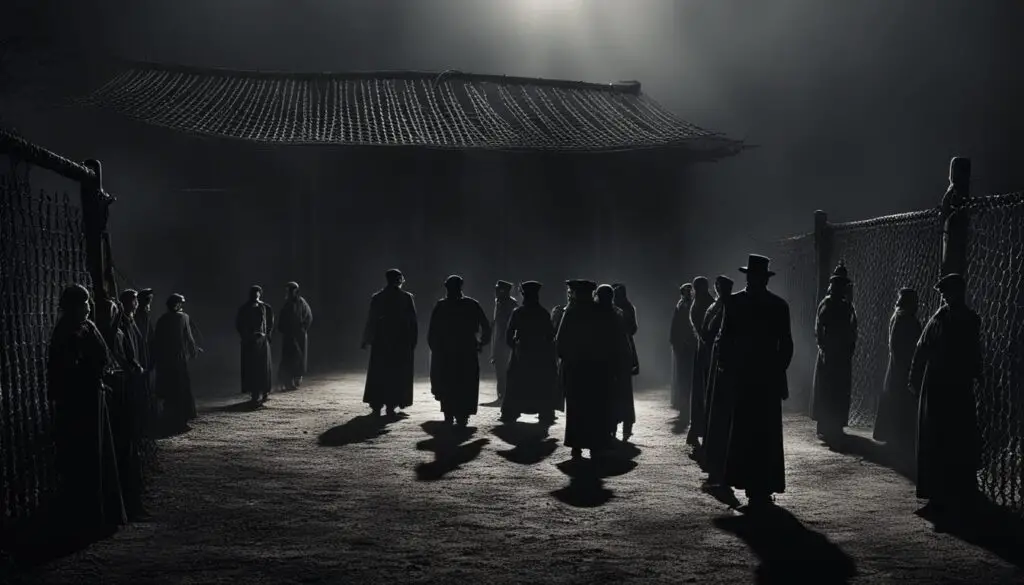
The Importance of Education in the Journey of Self-Knowledge
A education plays a fundamental role in the journey of self-knowledge. It is through education that we are exposed to different perspectives, we learn to question the shadows that surround us and we seek true knowledge. A education It allows us to develop critical thinking skills and empowers us to make informed decisions. It is through education that we can escape the cave of ignorance and explore the vastness of philosophical knowledge.
Education is the way to broaden our horizons and awaken our intellectual curiosity. By acquiring knowledge in the most diverse areas, we are able to better understand the world and ourselves. Through education, we become more aware of our own ignorance and constantly seek self-development.
When studying philosophy and other academic disciplines, we are exposed to different theories and schools of thought. This diversity of knowledge allows us to question the preconceived ideas we have and seek a deeper understanding of the world around us.
Furthermore, education enables us to develop critical thinking skills. By learning how to analyze and evaluate information impartially, we are able to make informed decisions and not be led by superficial or prejudiced ideas.
The journey of self-knowledge requires an open and inquiring mind, and education provides us with the tools necessary for this journey. It is through philosophical knowledge that we are able to reflect on fundamental questions of existence and explore our own nature.
“Education is the most powerful weapon you can use to change the world.” - Nelson Mandela
| Benefits of Education in the Journey of Self-Knowledge |
|---|
| Expands understanding of the world and oneself |
| Develops critical thinking skills |
| Allows you to question preconceived ideas |
| Promotes the search for true knowledge |
| Helps with personal development and self-development |
The Role of Social Networks and Technology in the Digital Age
Social networks and tech play a significant role in the digital age, providing global connectivity and immediate access to information. However, it is important to consider how these tools can influence and limit our philosophical knowledge.
People often get stuck in superficial information bubbles, consuming content that reinforces their existing beliefs. Furthermore, the algorithms used by social networks tend to personalize content, directing it according to the user's interests and previous behaviors.
This can result in the perpetuation of the so-called “cave of ignorance”, in which we limit ourselves to pre-conceived ideas, without questioning or seeking knowledge beyond what is presented to us. Interaction on social media can also promote an environment prone to polarized and intolerant discourse.
Therefore, it is essential to develop a critical awareness regarding the use of social networks and tech. We must be attentive to the quality and origin of the information we consume, seeking reliable and verified sources. Furthermore, it is important to diversify our connections and engage in open and constructive dialogues that challenge us to think more deeply and critically.
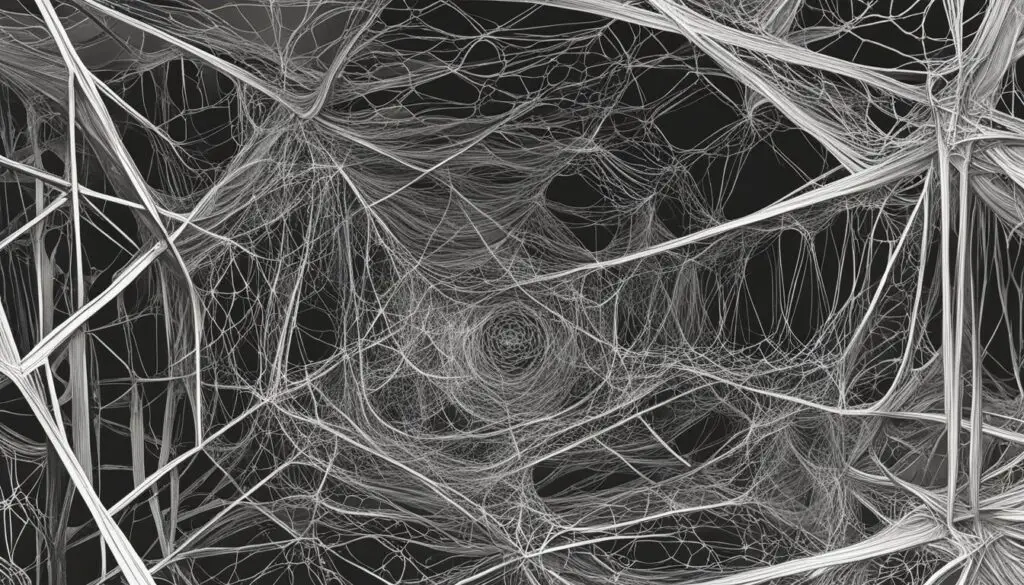
The Impact of Social Media and Technology on Opinion Formation
Social networks and tech have a powerful impact on opinion formation and information sharing in today's society. Digital platforms allow people to express themselves freely and directly influence a large number of people.
However, it is important to recognize that not all information found on social media is accurate or reliable. Fake news, for example, spreads quickly and can distort the truth. We must cultivate the habit of checking the veracity of information before sharing it.
Furthermore, it is essential to remember that social networks generally present us with an edited and idealized version of reality, where achievements are displayed and problems are often omitted. This can lead to unfair comparisons and feelings of inadequacy.
As a result, it is essential to develop a healthy and balanced relationship with social media and technology. We must be aware of the time we spend on these platforms and try to balance our use with activities that promote our mental health and well-being.
Opportunities and Challenges of the Digital Era
The digital age offers countless opportunities to expand our philosophical knowledge. Through social media, we can interact with philosophers, academics and people interested in the same topics, enriching our perspectives and expanding our horizons.
However, we also face challenges. Social media can expose us to a large volume of information, which can be overwhelming and make it difficult to discern between reliable and false information. In this sense, it is essential to develop critical reading skills and search for reliable sources.
Furthermore, we must be attentive to our behaviors on social media, avoiding superficial engagements and promoting constructive dialogues. It is important to remember that social media is not a substitute for deep philosophical thinking and critical reflection.
| The role of social media and technology | Benefits | Challenges |
|---|---|---|
| Global connectivity | Ease of communication and access to information | False information and misinformation |
| Diversity of perspectives | Expanding horizons and exchanging ideas | Echo Bubbles and Polarization |
| Ease of sharing | Rapid dissemination of relevant information | Distinction between reliable and false information |
In short, social media and technology can be powerful tools for expanding our philosophical knowledge, connecting us to different perspectives and facilitating the sharing of relevant information. However, it is essential to use them with awareness and discernment, seeking reliable sources and promoting constructive dialogues.
The Importance of Dialogue and Empathy
O dialogue open and the empathy They are fundamental to the search for philosophical knowledge and mutual understanding. By talking to people from different perspectives and listening to their experiences, we broaden our understanding of the world and are able to question our own beliefs. A empathy It allows us to connect with others and understand their life experiences, contributing to a more complete view of reality.
“A true dialogue is more than simply exchanging words. It is the expression of attentive listening, a genuine openness to the perspectives of others, and a willingness to abandon our certainties in favor of the joint search for truth.” – Albert Einstein
Through dialogue, we can explore different points of view and expand our philosophical knowledge. By discussing complex topics and sharing ideas, we are challenged to consider new perspectives and question assumptions. Dialogue also allows us to overcome communication barriers and find common solutions to the problems we face as a society.
A empathy plays a fundamental role in dialogue, as it allows us to understand the feelings and experiences of others. When we put ourselves in someone else's shoes and seek to understand their perspective, we generate deeper connections and cultivate an environment conducive to exchanging ideas. Empathy helps us overcome prejudices and create an inclusive space where all voices are heard.
Furthermore, dialogue and empathy promote the building of healthy and meaningful relationships. By establishing authentic connections with other individuals, we create an environment conducive to personal and collective growth. Exchanging knowledge and experiences enriches our understanding of the world and strengthens our ability to deal with the challenges we face.
The Power of Dialogue and Empathy in Society
Dialogue and empathy have the power to transform society. When we engage in respectful and empathetic conversations, we are able to overcome divisions and build bridges between different groups. Dialogue allows us to find collaborative solutions to the problems we face and promote social progress.
Through empathy, we are able to recognize the shared humanity between ourselves and others. This understanding leads to a more inclusive society, where all voices are valued and respected. Empathy connects us to each other and motivates us to work together towards a more just and harmonious world.
Therefore, it is essential to cultivate dialogue and empathy in our daily lives. By opening ourselves to different perspectives and practicing attentive listening, we enrich our philosophical knowledge and strengthen our communication skills. By connecting with others empathetically, we create more meaningful relationships and build a more inclusive and compassionate society.
| Benefits of Dialogue and Empathy | Why are they Important? |
|---|---|
| Promote mutual understanding | Allows the exchange of diverse ideas and perspectives |
| Enrich philosophical knowledge | Challenge assumptions and expand horizons |
| Foster healthy relationships | Builds authentic and inclusive connections |
| Promote conflict resolution | Promotes mutual understanding and search for solutions |
By practicing open dialogue and empathy, we become agents of positive change in society. It is through these tools that we can build a more just, inclusive and compassionate world, where philosophical knowledge flourishes and mutual understanding prevails.
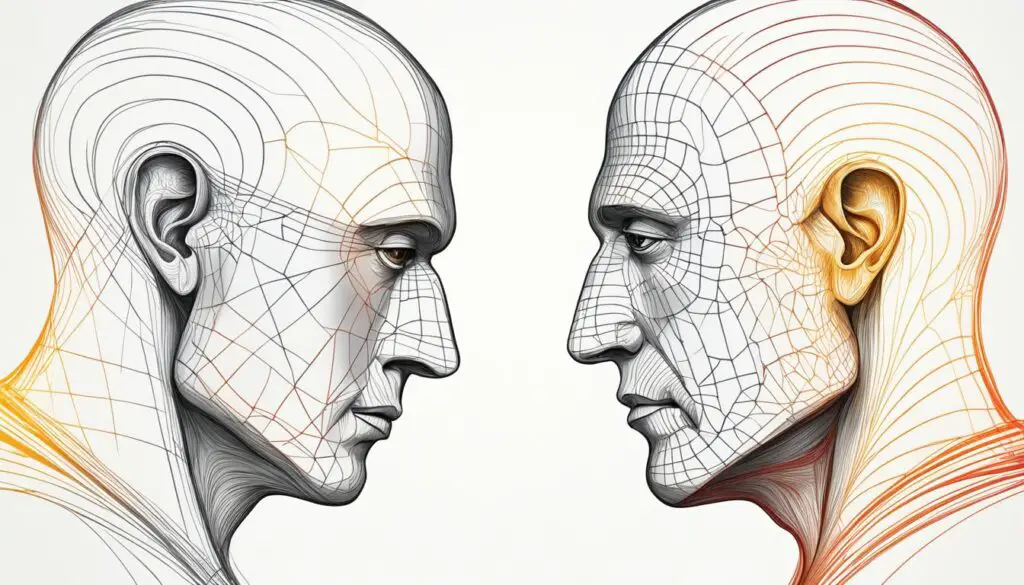
The Challenge of the Digital Age: Dealing with Misinformation
In the digital age, dealing with misinformation became an important challenge. The abundance of false information circulating on social media requires us to develop a digital awareness accurate to distinguish between reliable and misleading data. In this scenario, philosophical knowledge plays a fundamental role in the search for truth amidst the sea of misinformation that surrounds us.
Digital education becomes essential in this context, as it enables us to discern truthful information, cultivating critical thinking and the ability to question sources. By constantly searching for reliable sources and cross-checking information, we can combat the spread of misinformation and strengthen our true philosophical knowledge.
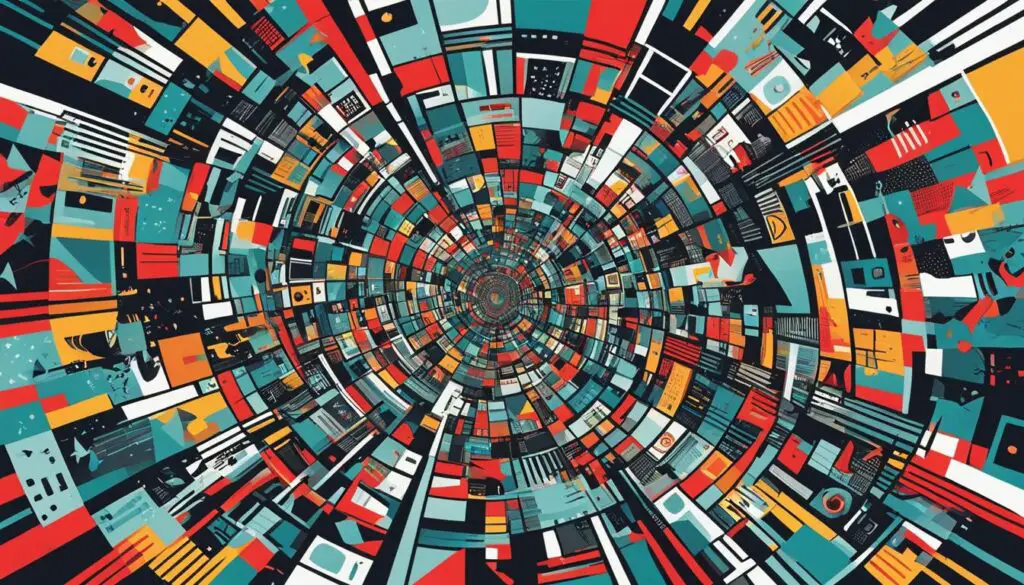
“Misinformation is like a shadow that obscures the truth, but philosophical knowledge is the light that dispels it.” – Anonymous
A digital awareness it also allows us to recognize the manipulation and hidden interests behind the information we consume. Being aware of the algorithms and personalization strategies present on digital platforms is essential to escape the influence of these information bubbles and seek broader and more impartial perspectives.
By strengthening our digital awareness and our philosophical knowledge, we become less susceptible to manipulation and more capable of making informed and responsible decisions. In this way, we are able to deal more effectively with the challenges of the digital age and contribute to the construction of a society based on solid facts and values.
The Importance of Digital Education in Combating Misinformation
Education plays a crucial role in shaping critical digital awareness. Through educational programs, it is possible to develop skills that help us identify and verify false information, understand how algorithms work and evaluate the credibility of sources. Furthermore, digital education enables us to use technological tools ethically and responsibly.
A comprehensive and ongoing educational approach is essential to addressing the challenges of misinformation in the digital age. This includes teaching young people from an early age to critically analyze the information they find online, to approach technology with a questioning eye, and to create a culture based on truthfulness and the pursuit of knowledge.
Combating Misinformation with Philosophical Knowledge
Philosophical knowledge provides the necessary tools to question, analyze and interpret the world around us. He teaches us to look beyond appearances and seek the truth beyond superficial narratives. By cultivating critical thinking, we are able to identify logical errors and fallacious arguments present in misinformation.
| Benefits of Philosophical Knowledge | How does it benefit? |
|---|---|
| Improves critical thinking | Allows you to discern between true and false information |
| Stimulates the search for truth | Combat misinformation and manipulation |
| Promotes ethics and responsibility | Strengthens digital awareness and the ability to make informed decisions |
It is essential that we seek philosophical knowledge as a tool to combat misinformation and promote a society based on ethical values and critical thinking. Through this constant search, we can become agents of change, cultivating a solid digital awareness and contributing to the construction of a more enlightened and informed world.
The Power of Philosophical Knowledge in Society
Philosophical knowledge is a powerful tool capable of transforming society and freeing us from the prison of ignorance. The search for philosophical knowledge allows us to transcend the limits of our understanding, understanding the fundamental questions of existence and questioning the power structures that shape the society in which we live.
Philosophy invites us to reflect on the world around us and seek answers to complex questions. It encourages us to question accepted truths and to think critically and analytically. By exploring different theories and philosophical perspectives, we expand our mental horizons and develop deeper, more grounded thinking.
The Greek philosopher Socrates stated that “a life that is not examined is not worth living”. This statement reflects the importance of seeking meaningful and in-depth philosophical knowledge, rather than living in common sense and superficiality.
Philosophy also helps us develop essential skills such as critical thinking, logical analysis and coherent argumentation. These skills are valuable for facing the intellectual and ethical challenges we encounter in our everyday lives, as well as for dealing with the complexities of contemporary society.
Without philosophical knowledge, we run the risk of remaining trapped in a limited view of reality, influenced by prejudiced ideas and stereotypes. Philosophy enables us to question these ideas and seek a deeper, more comprehensive understanding of the world.
The Value of Philosophy in the Search for Knowledge
The appreciation of philosophy and philosophical knowledge is essential for individual and collective development. By seeking philosophical knowledge, we expand our ability to understand the world and live a more meaningful life.
Philosophy challenges us to explore different perspectives and question established truths. It teaches us to reflect on our values, ethics and purpose in life. By delving into philosophical knowledge, we are provoked to think more critically, confront moral dilemmas, and seek a sense of meaning in our existence.
Furthermore, philosophy provides us with a solid basis for analyzing and understanding other fields of human knowledge. It establishes a connection with disciplines such as science, politics, psychology and ethics, enabling a more comprehensive and integrated view of the world.
In short, philosophical knowledge has the power to free us from ignorance and enable us to live more authentically and consciously. By valuing philosophy and investing in the search for philosophical knowledge, we contribute to the evolution of society, promoting critical thinking, ethical reflection and the search for the true meaning of life.
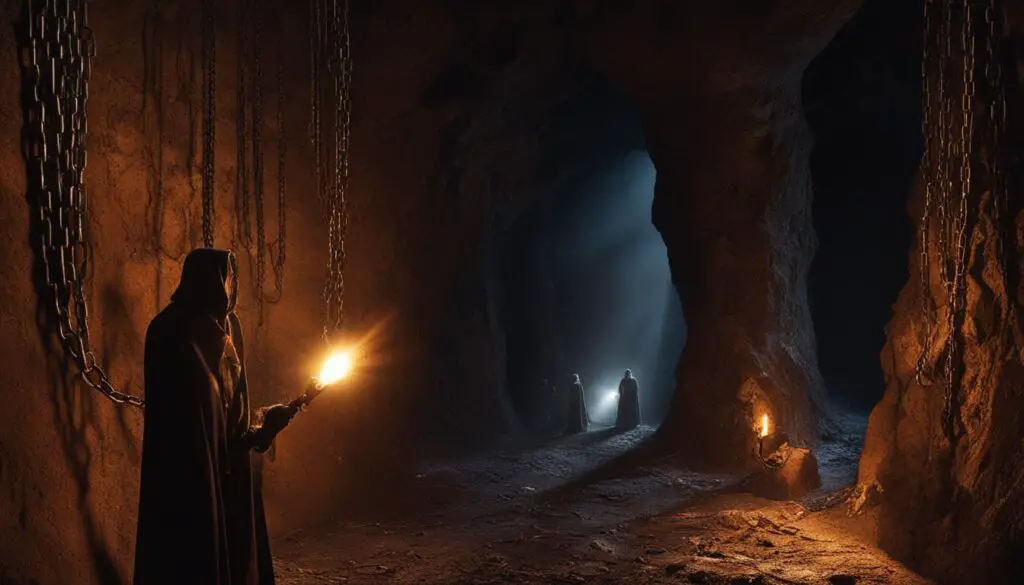
Conclusion
Plato's myth of the cave continues to be a powerful allegory that invites us to reflect on our search for truth and philosophical knowledge. In an increasingly connected world, it is essential to question the shadows that surround us, seek dialogue and empathy and develop a critical awareness in relation to the information we consume. Only through the constant search for philosophical knowledge and self-knowledge can we free ourselves from the prison of ignorance and find true enlightenment.
Our journey of self-knowledge and search for knowledge are fundamental to understanding the fundamental questions of existence, challenging our own beliefs and reaching a deeper level of understanding. Philosophy offers us tools to question the status quo, unlock the mysteries of the universe, and seek a deeper understanding of ourselves and the world around us.
The pursuit of philosophical knowledge allows us to transcend the limitations of ignorance and find true enlightenment. By challenging our own assumptions, examining different perspectives, and exploring life's complexities, we become more aware of ourselves and the world in which we live. We free ourselves from the cave of ignorance and open ourselves to the vast ocean of philosophical knowledge and wisdom that awaits us.
FAQ
Q: Who are the prisoners in the cave myth?
A: The prisoners in the cave myth represent human beings who are trapped in ignorance and do not seek philosophical knowledge.
Q: What is the allegory of the cave in Platonic philosophy?
A: The allegory of the cave is a metaphor presented by Plato in his work “The Republic”. It represents how human beings are trapped in ignorance and how the pursuit of philosophical knowledge can free them.
Q: What is the interpretation of the cave myth?
A: Interpreting the myth of the cave involves understanding the symbols present in the allegory, such as the prisoners, the cave, the shadows and sunlight. The myth represents the journey of self-knowledge and the search for true knowledge.
Q: How does the myth of the cave relate to today?
A: The myth of the cave remains relevant today, as many people are content to live in the “cave” of ignorance, consuming superficial information. The search for true knowledge and critical reflection are essential to escape the prison of ignorance and explore philosophical knowledge.
Q: How important is education in the journey of self-knowledge?
A: Education plays a fundamental role in the journey of self-knowledge, because through it we are exposed to different perspectives, we learn to question the shadows that surround us and we seek true knowledge.
Q: What is the role of social media and technology in the digital age?
A: Social media and technology play a significant role in the digital age, but they can also contribute to the perpetuation of the cave of ignorance. It is essential to develop a critical awareness regarding the use of social networks and technology and seek information from reliable sources to expand our philosophical knowledge.
Q: How important is dialogue and empathy in the pursuit of philosophical knowledge?
A: Open dialogue and empathy are fundamental to the pursuit of philosophical knowledge and mutual understanding. By talking to people from different perspectives and listening to their experiences, we broaden our understanding of the world and are able to question our own beliefs.
Q: How to deal with misinformation in the digital age?
A: Addressing misinformation has become a major challenge in the digital age. It is essential to develop digital awareness to discern between reliable and misleading information, seeking reliable sources and validating information before believing it.
Q: What is the power of philosophical knowledge in society?
A: Philosophical knowledge has the power to transform society, allowing us to understand the fundamental questions of existence, question power structures and seek a more just and balanced society.
Q: How important is the search for philosophical knowledge and self-knowledge?
A: The pursuit of philosophical knowledge and self-knowledge is essential to escaping the prison of ignorance and finding true enlightenment. It allows us to question and transcend the limitations of the illusory reality that we perceive through the senses and seek true knowledge.






